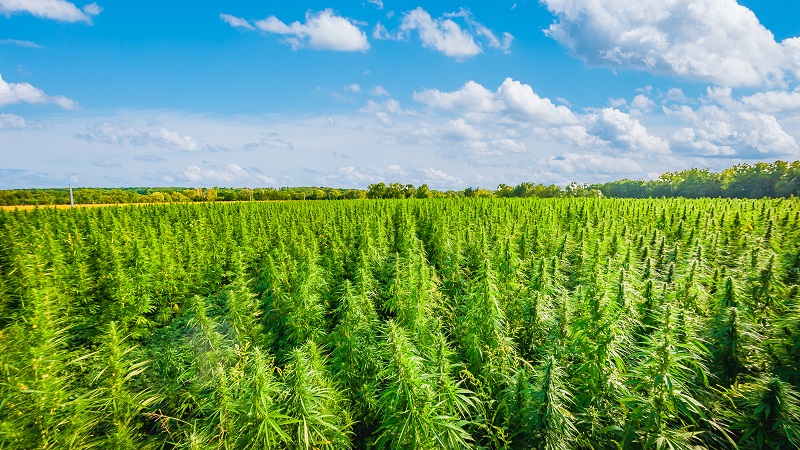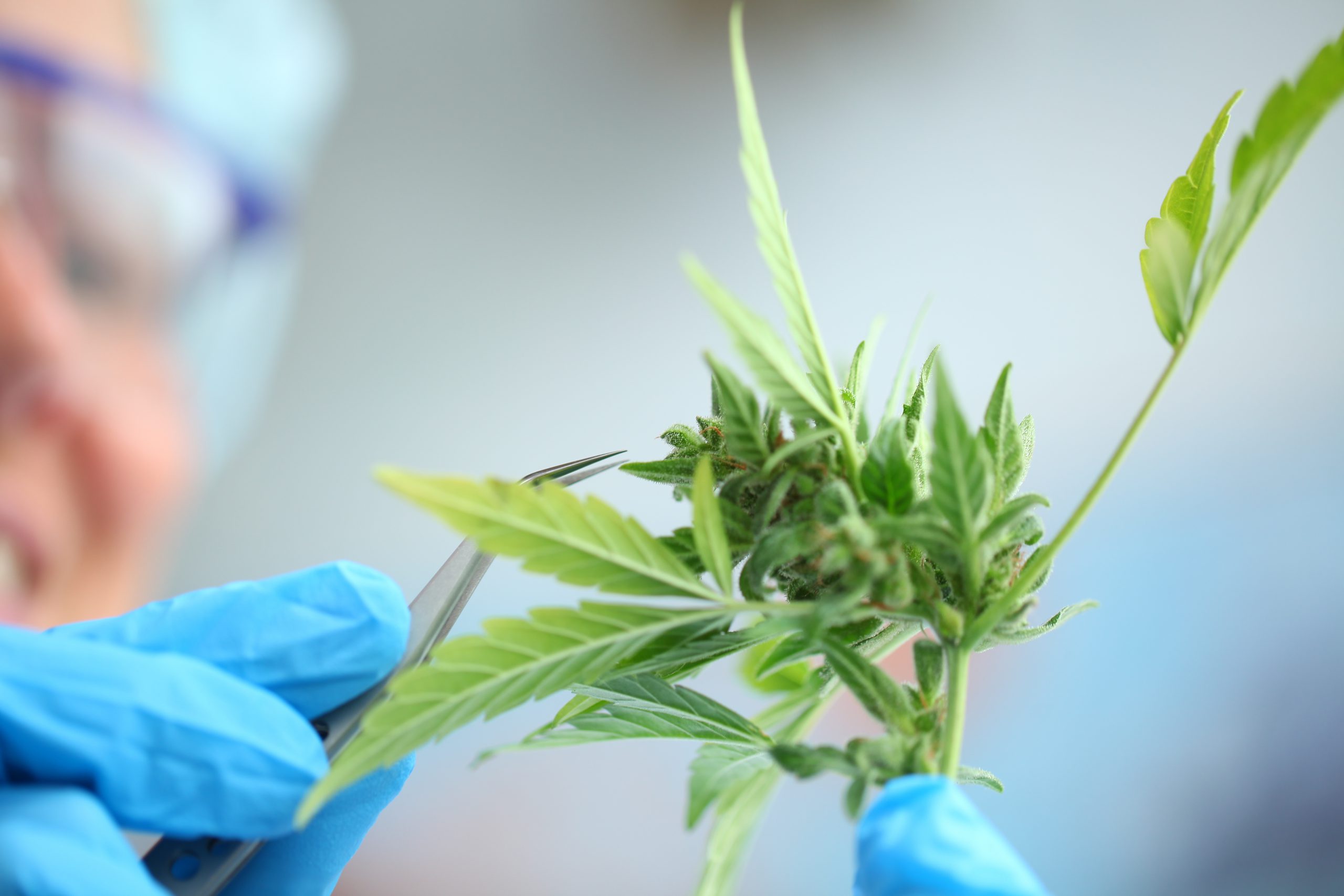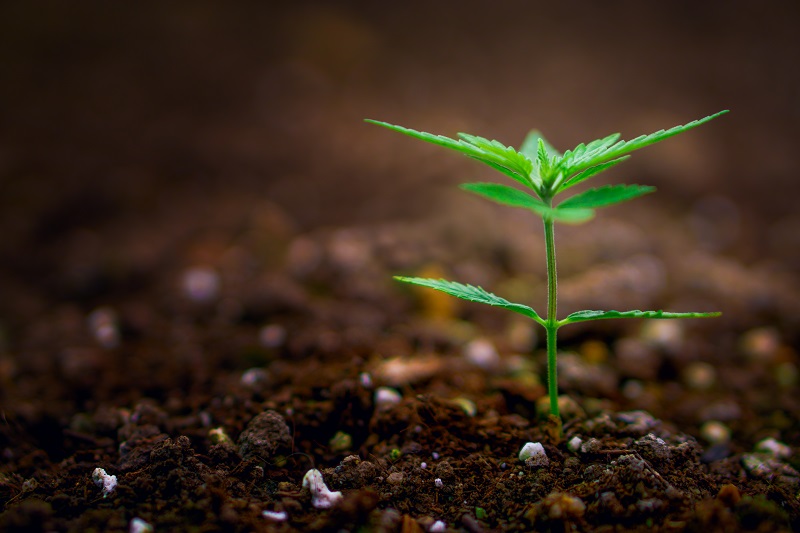The Role of the Endocannabinoid System in Treating Eczema

Our human body runs on numerous processes and biological functions. Thousands of biochemical reactions take place every minute that enable you to carry out the simplest of tasks, such as cell growth and repair, digestion, nutrient absorption, breathing, sleeping, memorizing, and more.
Now, almost all of these reactions need to be triggered by certain signals. Only when the target cells get a certain inhibitory or activation signal do they kickstart. Without the presence of these signals, the normal reactions would not take place, resulting in side effects, medical conditions, diseases, and more. This is where the endocannabinoid system or ECS comes into play.
The endocannabinoid system was discovered in our bodies as recently as the early 1990s. Its discovery led to numerous revolutionary medical advances, allowing patients to get relief from diseases that weren’t getting diagnosed by doctors. Even though the knowledge of the endocannabinoid system is currently limited, the information that we do have is very powerful. We know that the endocannabinoid system has three components in particular:
- Endocannabinoids
- Receptors
- Enzymes
We also know that the endocannabinoid system plays a crucial role in numerous functions and processes, such as skin homeostasis, sleep, memory, mood, appetite, and pain. One of the most recently discovered roles of the endocannabinoid system has been found in skin homeostasis. Homeostasis is the tendency to maintain a steady equilibrium of the environment by the use of physiological processes. What happens when this steady state is disrupted? What conditions can arise from disrupted skin homeostasis? How does the endocannabinoid system work to maintain this homeostasis? Let’s have a detailed look at the same.
Three core components of the endocannabinoid system
As mentioned above, the endocannabinoid system comprises three main components – endocannabinoids, receptors, and enzymes. Endocannabinoids are molecules made by our bodies that are very similar to cannabinoids found in CBD oil. Till now, two main endocannabinoids have been found in the endocannabinoid system – 2-arachidonoylglycerol and anandamide. These endocannabinoids are extremely crucial in running numerous internal processes. Now, these endocannabinoids need to bind to something to run a certain internal process. This is where receptors come into play. The two most important receptors of the endocannabinoid system are CB1 and CB2 receptors. When endocannabinoids bind to either the CB1 or CB2 receptors, the endocannabinoid system receives a signal that a particular action needs to be taken. Now, the last leg of this process is where enzymes come into play. After the endocannabinoids have carried out their function, they need to be broken down to stop the process. This is carried out by the enzymes fatty acid amide hydrolase and monoacylglycerol acid lipase.
What happens when the endocannabinoid system is disrupted?
A 2018 study published in the International Journal of Molecular Sciences discusses in detail how the signaling and function of the central nervous system are heavily impacted by the cannabinoid receptors in the endocannabinoid system. However, when a disruption occurs in the signaling or functioning of the endocannabinoid system, it leads to normal physiological processes getting hampered. Some of the most common medical conditions that this disruption leads to are:
- Loss of appetite
- Chronic pain and inflammation
- Neurodegenerative diseases
- Poor liver and digestive function
- Weak and brittle bones
Apart from these, another issue that disruption to skin homeostasis might lead to is eczema. Eczema is a skin condition that leads to inflammation, itchiness, and redness of the skin. There are several types of eczema that can affect a person, such as atopic dermatitis, allergic contact dermatitis, irritant contact dermatitis, and asteatotic eczema. Out of these, atopic dermatitis is the most common type of eczema.
Symptoms of eczema
The symptoms of eczema depend on the patient’s age. While a child might develop only itchy and scaly skin, the intensity of these in adults might be severe, or they might also develop bacterial infections in the problem area. Overall, the most common symptoms of eczema are as follows:
- Skin looks flushed and red.
- Rashes all over the body, especially knees, elbows, buttocks, cheeks, and neck.
- Dry, scaly skin.
- Bumpy rashes that can also develop pigmentation.
- Bacterial infection of the rashes.
- Skin thickening.
- Intense itching and inflammation.
- Pain in the areas where the rashes have developed.
In some cases, these symptoms tend to go away with time. However, more commonly, these symptoms stay for a long period. In light of this, it becomes very important to manage the condition and provide the patient with some relief.
Treating Eczema by interacting with the endocannabinoid system
While this is a fairly common skin condition, there is no cure for eczema. Moreover, the treatment options are very limited. This is where CBD products such as pain relief sprays, pain relief roll-ons, CBD body oils, facial serums, face oils, pain relief creams, and pain relief oils come into play. Since the cannabidiol in CBD interacts directly with the body’s endocannabinoid system, it can be very beneficial in treating the symptoms of eczema. A 2017 study published in the Dermatitis Journal found that the endocannabinoid system is a therapeutic target to treat several dermatological conditions. The skin plays a central role in several immune and endocrine responses. These immune responses are key when it comes to the development of skin conditions like eczema.
Looking at the most common type of eczema, atopic dermatitis results in poor immune responses as well. Atopic refers to a condition related to your immune system, whereas dermatitis refers to inflammation of the skin. Since the endocannabinoid system controls and affects numerous physiological responses of the immune system, especially related to the human skin, it makes sense to target the endocannabinoid system to treat any disruptions.
In reducing rashes and inflammation
The most common symptom of eczema is the development of severe rashes and inflammation on the skin. These rashes cover a large area of the body and are more commonly located on the knees and elbows. In adults, the rashes are also more scaly and bumpy. To deal with these symptoms, it is crucial to use a powerful anti-inflammatory agent. CBD products like CBD body oils, facial serums, and face oils show excellent benefits in this matter. The cannabidiol in CBD body oils has strong anti-inflammatory properties. A study published in the Molecules journal shows that cannabidiols show powerful anti-inflammatory properties when dealing with skin inflammation.
Cannabidiols bind to the receptors in the endocannabinoid system to produce signals. These signals trigger the target area to produce an anti-inflammatory response. This enables the skin to get relief from the inflammation and the rashes. With reduced inflammation, patients don’t feel the need to itch constantly. Along with the inflammation caused by eczema, it can cause a great deal of pain to the patients. Constant itching can also result in open wounds on the skin. Pain relief sprays, pain relief roll-ons, CBD body oils, facial serums, face oils, pain relief creams, and pain relief oils are potent analgesics and help patients get relief from the pain. These CBD topicals can be easily applied to the problem area with a clean finger. However, if patients find that too painful, they can opt for pain relief sprays or pain relief roll-ons.
In hydrating dry and thickening skin
Dry skin is another symptom that accompanies eczema. Certain patches on the person’s skin become incredibly dry and scaly. In certain cases, this can also lead to skin thickening or lichenification. These thickened patches are permanently itchy, thereby making the condition even more painful and uncomfortable. A 2019 study published in La Clinica Terapeutica found that a 3-month long treatment of atopic dermatitis with CBD oil significantly improves the skin’s elasticity and hydration. The cannabidiols interact with the receptors in the endocannabinoid system to trigger sebaceous glands to produce moisture. Thus, CBD body oils and facial serums can be used by patients suffering from eczema. These products help increase the hydration levels in the skin, thus taking care of the dryness. Hydrated and elastic skin ensures that you do not develop dry and rough skin patches. As a result, the patient feels more relieved and pain-free.
In treating bacterial infections
Cannabidiols carry powerful antimicrobial properties. A 2020 study published in the Nature journal found that cannabidiol exerted an inhibitory effect on the formation of bacterial colonies by interacting with the receptors in the endocannabinoid system. This eventually leads to the destruction of these bacterial colonies, especially the ones in which Gram positive bacteria are involved. This ability to reduce colonization of the bacteria was also proved by another study published in Springer. This property is very beneficial when it comes to treating the bacterial functions that can result from eczema.
In increasing the effect of the endocannabinoid system
The third important components of the endocannabinoid system are the enzymes fatty acid amide hydrolase and monoacylglycerol acid lipase. These enzymes work on breaking down the endocannabinoids to stop them from sending signals once the necessary process is over. However, in some cases, the enzymes might work prematurely and break down the endocannabinoids before the necessary function is completed properly. This results in reduced functioning of numerous biochemical and physiological processes, thereby making the symptoms of several medical conditions worse. Cannabidiol can help prevent this from happening. It prevents the enzymes from affecting the receptors prematurely, thus increasing the potency of the CBD product. This pronounced effect helps the patient receive the benefits of the CBD products for a longer time.
How to use cannabidiol to treat eczema?
Now that we understand how cannabidiol interacts with the endocannabinoid system to treat and relieve the symptoms of eczema, we must also learn how one can use it. The most common form of treatment of eczema using cannabidiol is CBD topicals. Products such as pain relief sprays, pain relief roll-ons, CBD body oils, facial serums, face oils, pain relief creams, and pain relief oils can be directly applied to the problem area. These are very beneficial in relieving pain and helping patients provide hydration and elasticity to their skin. However, some patients find it uncomfortable to apply the products directly to their skin rashes. Moreover, the bioavailability of CBD topicals is less and can lead to poor stimulation of the endocannabinoid system.
In such cases, doctors usually recommend the patient to try different forms of CBD products. These include pills, capsules, edibles, oromucosal, intranasal, and tinctures. Pills, capsules, and edibles can be easily administered without any problems. Oromucosal CBD products and tinctures can be put under the tongue. On the other hand, intranasal CBD products such as nasal sprays, nebulizers, and vaporizers are administered via the nose. These products have a relatively higher bioavailability than CBD topicals. This means that their absorption rate in the endocannabinoid system is higher, thus enabling patients to get better results.
Other precautions to consider when treating eczema
There are several precautions that can be taken to ensure that the patient receives better relief from eczema. These precautions are especially crucial if your condition is very severe.
- Keep your fingernails short.
- Avoid doing activities that make you sweat.
- Avoid rapid temperature changes.
- After a bath, dry your body very gently.
- Use a non-soap body cleanser for baths.
- Wear soft linen clothes.
- Take lukewarm baths using a gentle scrub.
- Moisturize as often as possible.
- Avoid contact irritants like detergents, soap, and disinfectant.
- Cut out dairy products from your diet.
Conclusion
The endocannabinoid system plays a very vital role in numerous medical conditions, eczema being one of them. Owing to its role in maintaining skin homeostasis, it becomes very important to address the endocannabinoid system if you are looking to get relief from eczema. CBD products like pain relief sprays, pain relief roll-ons, CBD body oils, facial serums, face oils, pain relief creams, pain relief oils, pills, edibles, capsules, tinctures, and more are powerful agents to help eczema patients get relief from the many painful symptoms. Continued usage of CBD products under a doctor’s supervision can be a blessing for patients suffering from eczema. These products work at the root cause of the problem – disruptions in the endocannabinoid system – to bring long-term and faster results. Only when you deal with the root of the issue can you truly bring forth effective and long-lasting therapeutic effects.
More articles:



